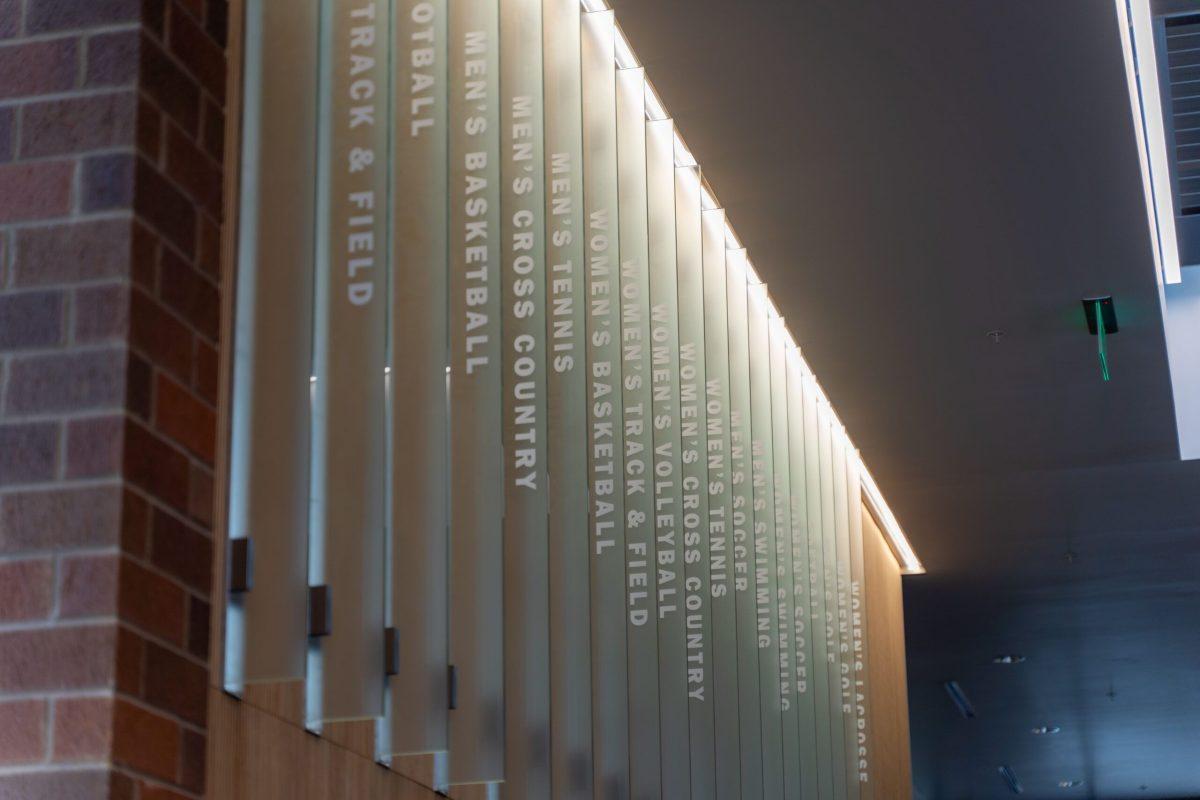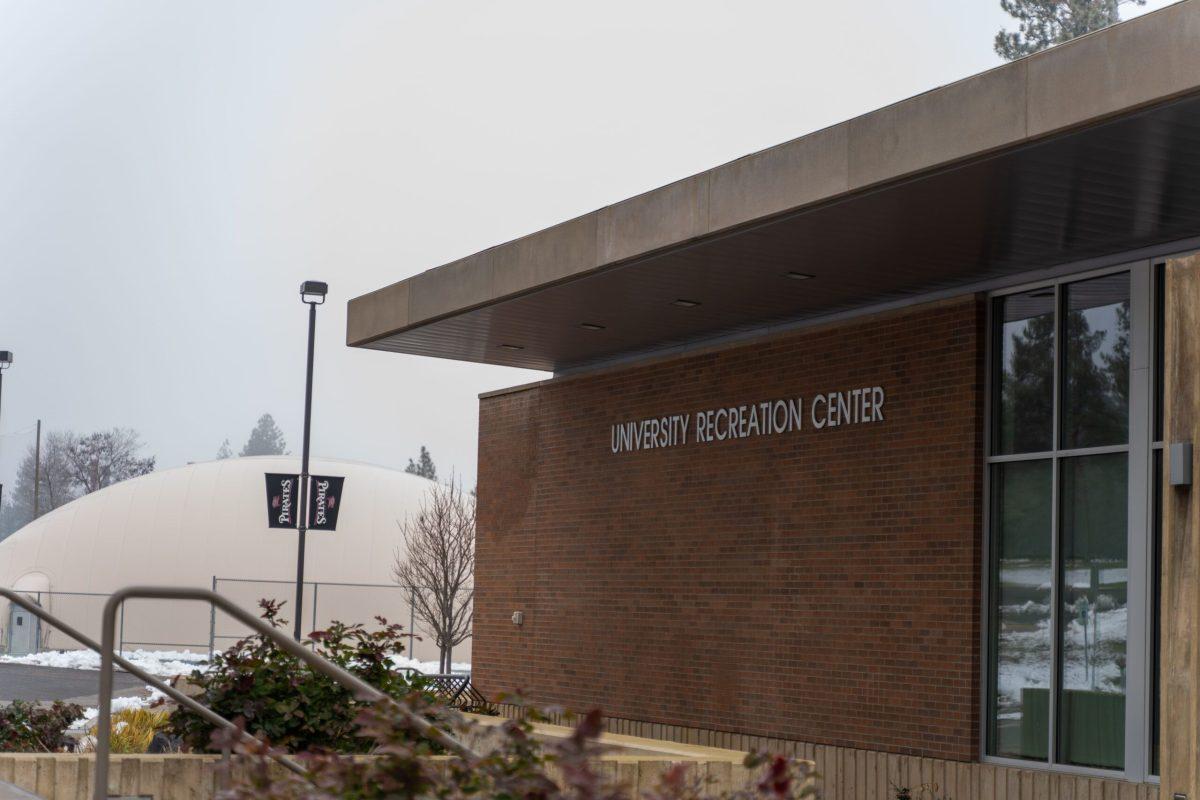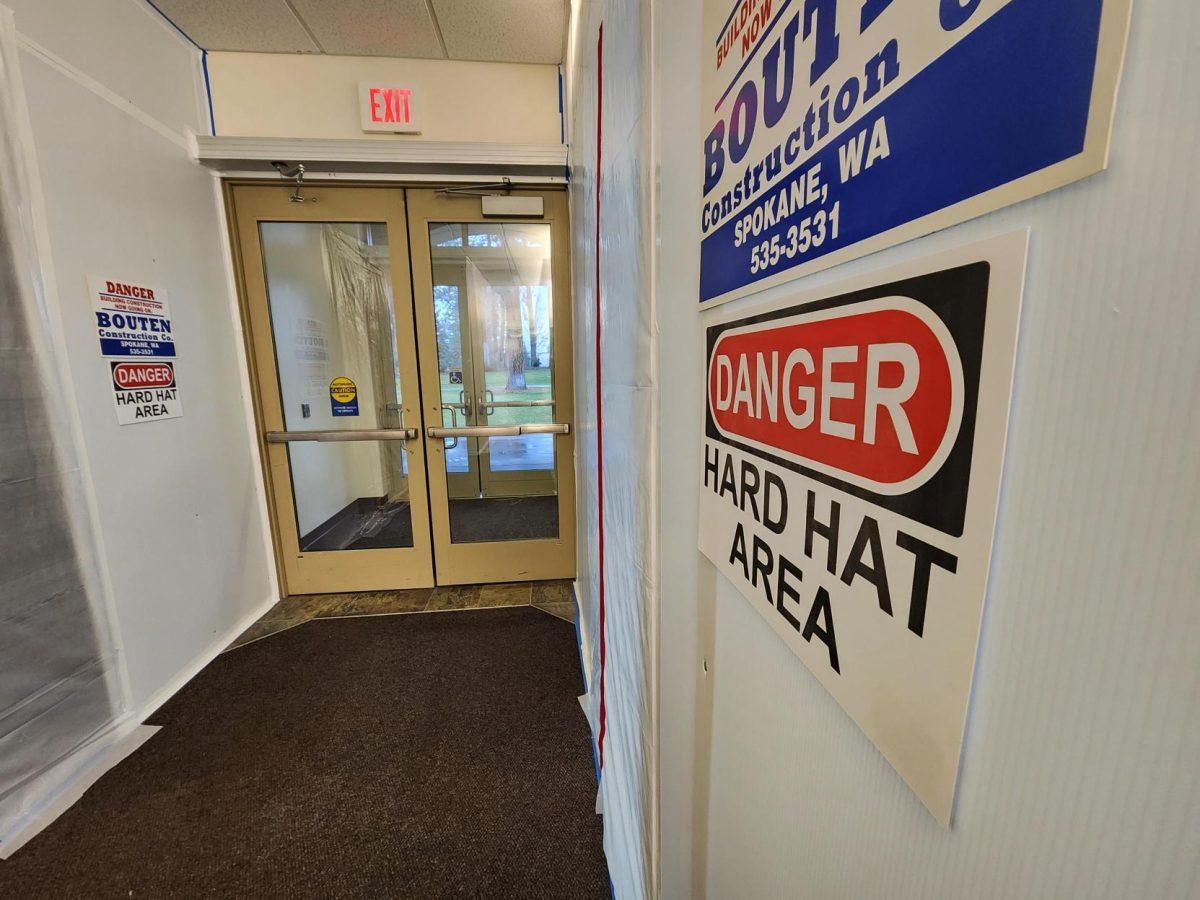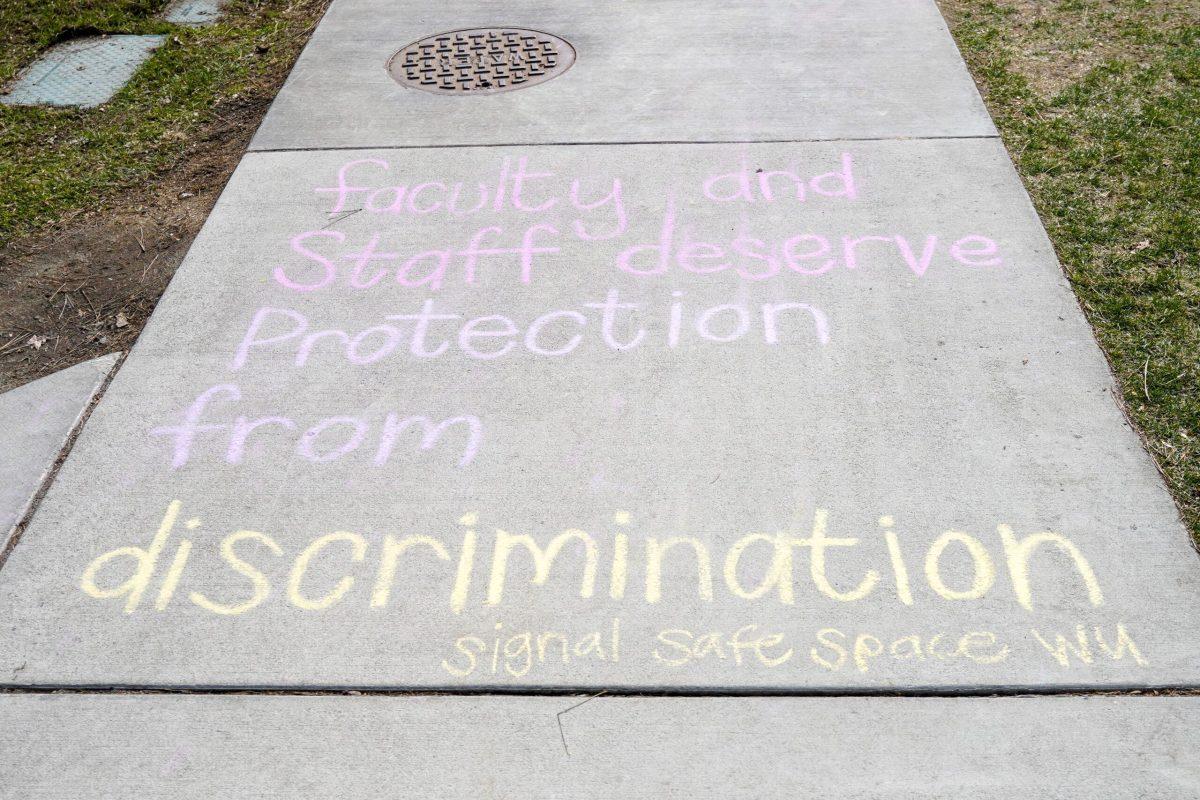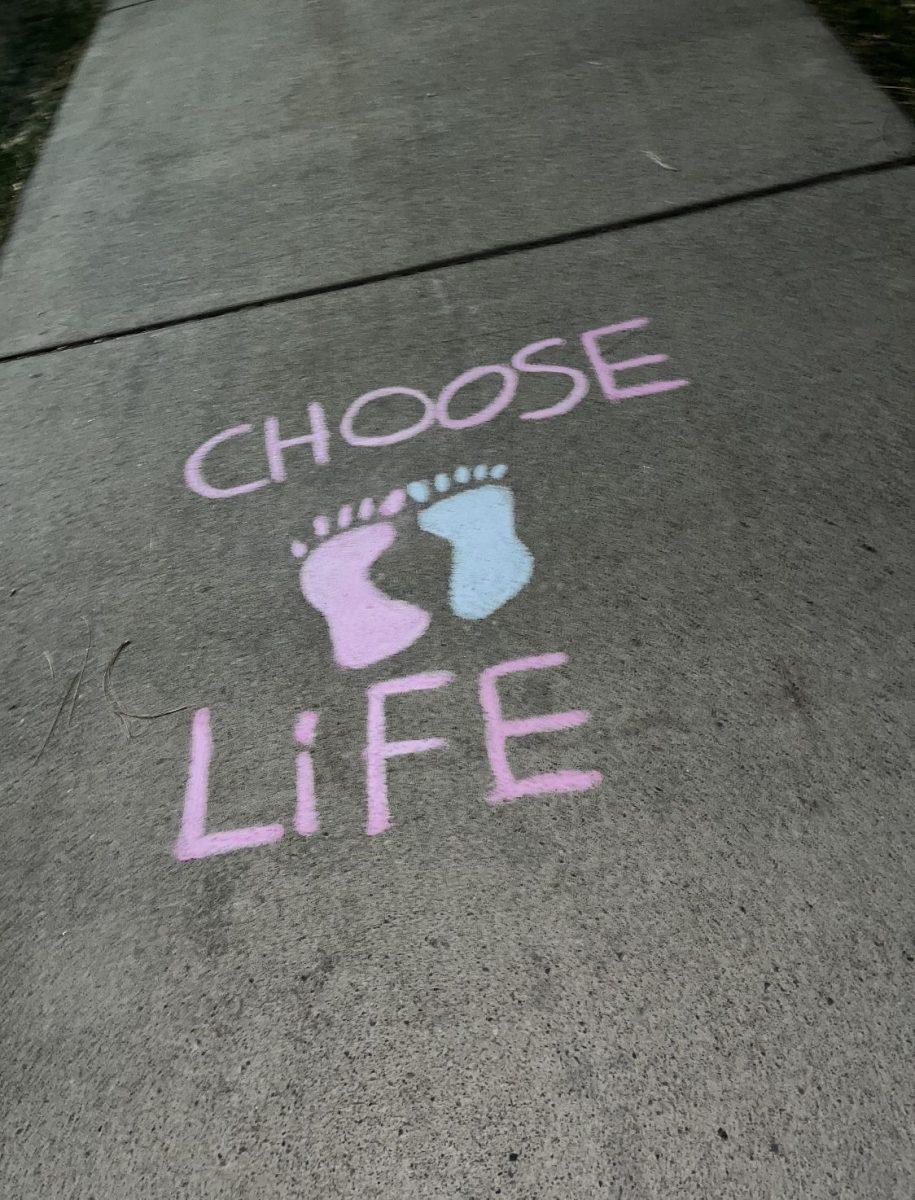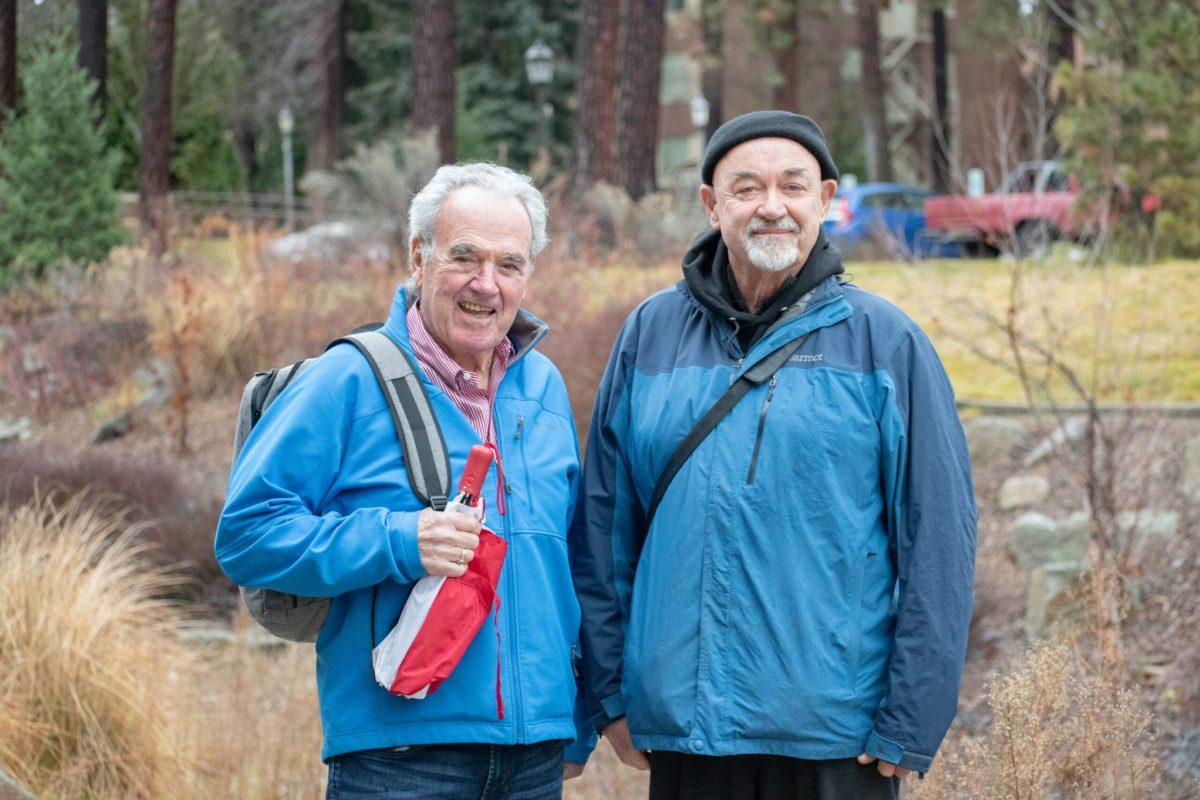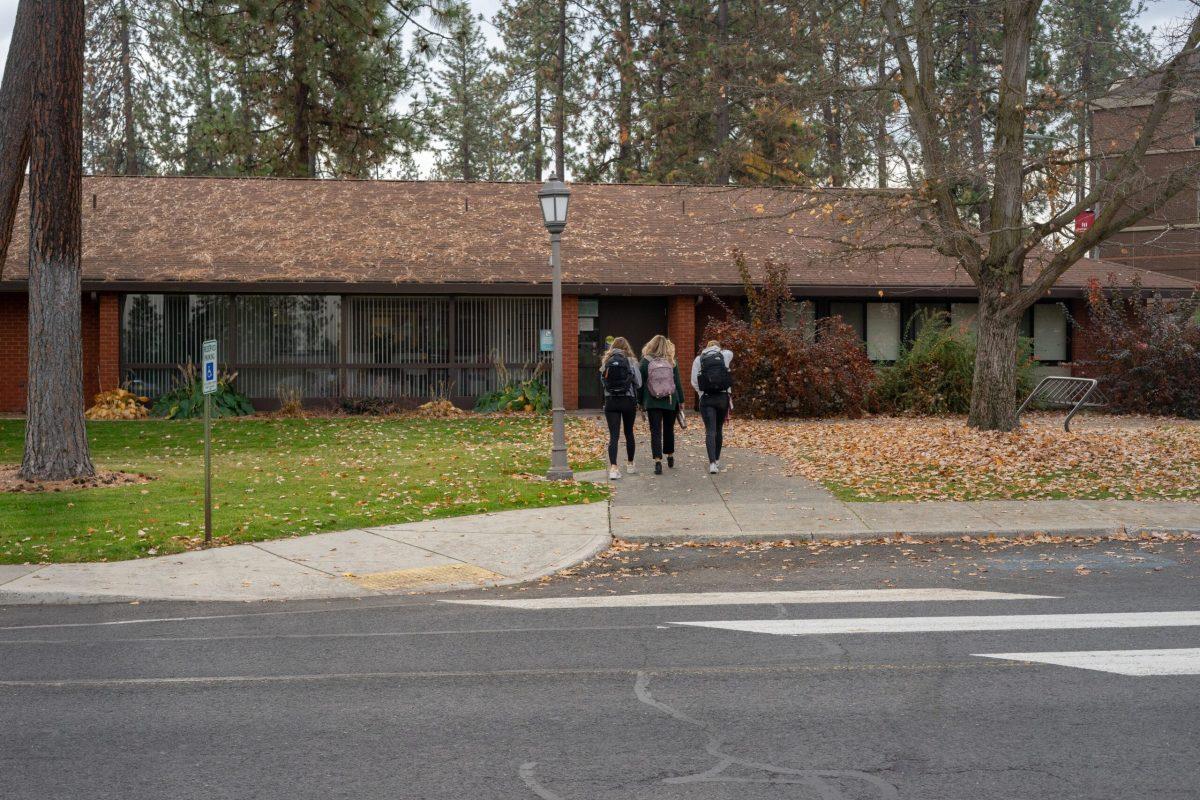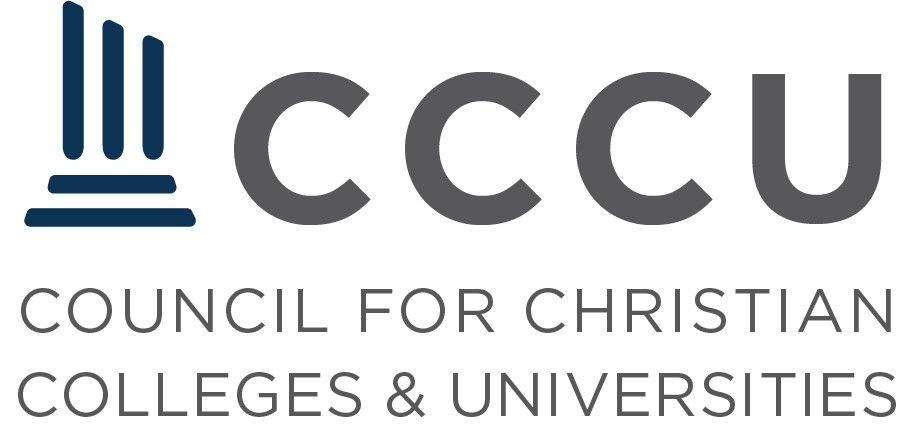On April 19, the Act Six cadre at Whitworth University organized a mental health activity at the HUB. The activity consisted of replying to one of several prompts on a notecard. These notecards were then hung up with string on a stairwell in the middle of the HUB.
The group of students who organized this event are all recipients of the Act Six scholarship, a scholarship given to eight recipients. The Act Six scholarship is a community-based scholarship designed to support underrepresented students. It is awarded to four students from Tacoma and four from Spokane. Each group of students awarded the scholarship makes up a cadre. The application is a three-phase process and is awarded to people who prove good teamwork skills and people like scholarship recipient Sophea Christensen, a first year-psychology major who “wants to serve the communities and give back and make a difference.”
Isaiah Lindsley, a first-year theology major and Act Six scholarship recipient, said that the Act Six program was “mainly for students who are financially unable to come to college or racially or ethnically underrepresented in private institutions.”
Each Act Six cadre is required to organize a total of four community-centric activities or projects by the time they graduate. The Mental Health project was focused on the mental health of students in the Whitworth community, according to Christenson.
Annika Avina, a first-year sociology major and Act Six scholarship recipient, was in charge of the advertising and the artwork for the poster board. The poster board gave a brief explanation of Act Six and the goal of the project. Christensen was in charge of shopping for the necessary supplies and brainstorming the prompts for the activity.
Christensen said this project was important because, “I’ve always struggled with my mental health and it got worse as I started college. I realized that college is not the best for people.” She points out that this is especially true for those that are “not white and rich. It’s [also] harder for first generation people.”
Lindsley was in charge of the organizational aspects of the project like dispersing the workload and delegating the shifts for the day-of the booth. He feels that “a lot of college students struggle with mental health. We know that there are people on this campus [who’ve] experienced that a lot. We kind of thought that maybe sharing [people’s stories] could help another person [from feeling] like they’re the only one going through mental health issues in college.”
The cadre timed this project for May because it is Mental Health Awareness Month.
Avina said that “I feel like this just made people more aware of what’s going on, that they’re not alone in their [mental health] journey.” Especially since the activity showed others that “there’s other people here who do care for them and that do love them for themselves and who they are.”
All three cadre members said that the response to the activity was positive and exceeded their expectations. The display is will remain hanging in the HUB for as long as possible throughout the remainder of the 2022-2023 school year.

